Leibniz biscuit empire’s dark Nazi past revealed: Bahlsen dynasty behind famed German brand admits backing Hitler’s regime and using forced labour during Second World War
The German dynasty behind the Leibniz cookie empire has admitted its Nazi past after historians revealed the company made extensive use of forced labour and provided financial support to Hitler’s regime during World War II.
The Bahlsen family has been the driving force behind the brand behind the iconic biscuits since it was founded in 1891 by Hermann Bahlsen. According to the family, they have never asked themselves ‘the obvious question of how our company survived the Second World War.’
The biscuit manufacturer came under increasing pressure to confront its dark past in 2019, when Verena Bahlsen, daughter of owner Werner M Bahlsen, sparked outrage by claiming the company had “done nothing wrong” and treated forced laborers “well”.
Critics fiercely opposed the wealthy heiress, who subsequently apologized and promised the family would investigate the company’s history during the World Wars.
The commission for this was given by historians Manfred Grieger and Hartmut Berghoff of the University of Göttingen. Their report now shows that forced labor was used on a larger scale than previously thought.
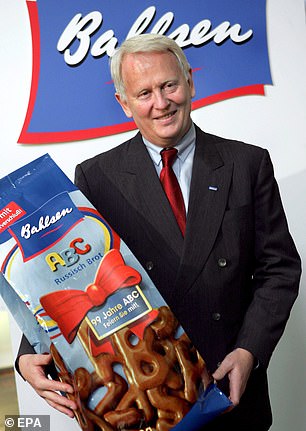
Verena Bahlsen (left) is one of the four children of company owner Werner Bahlsen (right)
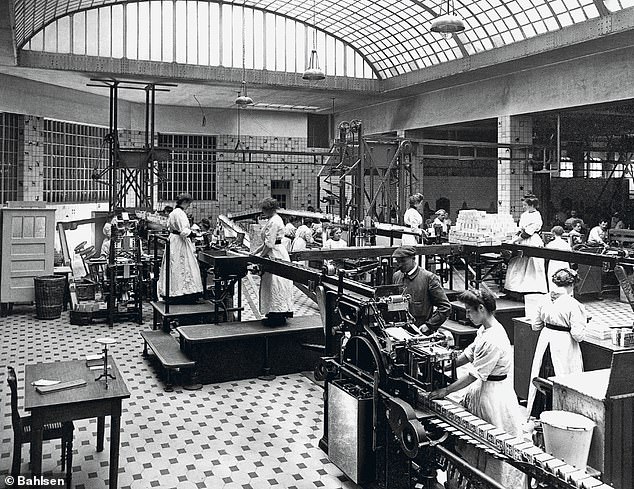
Most of the forced laborers at Bahlsen in Hanover were women, many from Nazi-occupied Poland and Ukraine. Pictured: Bahlsen production line in Germany in the 1930s

The Bahlsen family has been running the company behind the iconic Leibniz biscuits for over 130 years
They found that the company employed about 800 foreign workers between 1940 and 1945, up from previous estimates of about 200.
Most of the forced laborers at Bahlsen in Hanover were women, many from Nazi-occupied Poland and Ukraine.
This was common in factories in Germany during the war. An estimated 13 million people from the occupied territories were forced to work to relieve the pressure on the labor force.
The report found that the foreign workers were victims of racial discrimination and harsh treatment.
Compared to other workers, they received lower wages, limited food rations, and poorer medical care.
Polish women had to wear a purple-yellow P-badge to indicate their nationality and social contact with Germans was forbidden.
They were housed in barracks, far away from the local population. Polish men who had sexual contact with German women were threatened with execution.
The family business also benefited from the acquisition of a biscuit factory in occupied Ukraine.
Three sons of founder Hermann Bahlsen, who were on the board, were also members of the Nazi Party and even supported the SS financially.
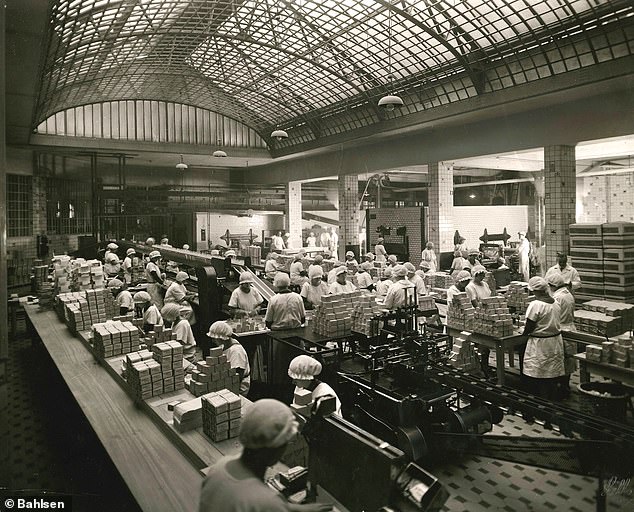
Verena Bahlsen previously said the company, which employed a number of forced laborers during World War II, “did nothing wrong at the time.” Pictured: Workers at Bahlsen’s Hanover factory in 1929
After the war, their involvement was hardly questioned, even by the Allies.
Mr Berghoff said The Times that Bahlsen has removed National Socialism ‘as if’ [an] old clothing and within a few weeks excellent relations were established with the British Army, which, like the Wehrmacht, bought Bahlsen products in large quantities and frequented the factory.
In a statement about the findings, the family said: ‘The research results show that our predecessors and protagonists of the time abused the system during the Nazi era.
‘Their main motivation seemed to be to continue the company under the Nazi regime, with all the dire consequences that entailed.
‘Much damage was done, especially to the more than 800 forced laborers from 1940 to 1945. That is unforgivable.
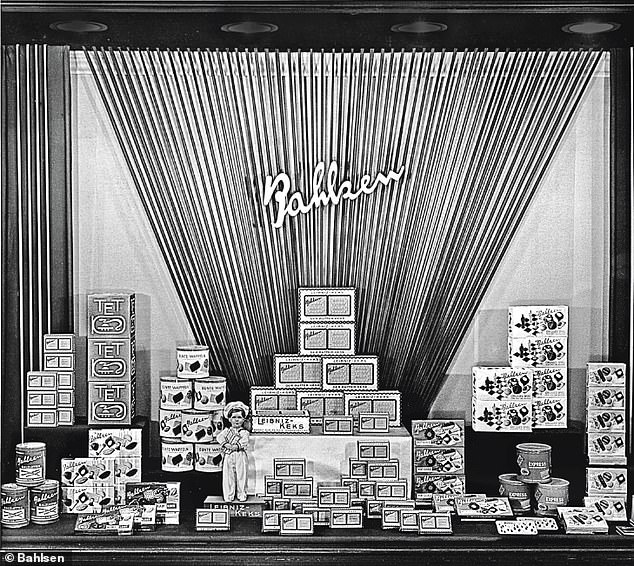
The company was founded by Verena Bahlsen’s great-grandfather in the late 19th century, the biscuit company employed around 200 forced labourers, mainly women, between 1943 and 1945. The company now has an annual turnover of more than 500 million euros (£435 million)
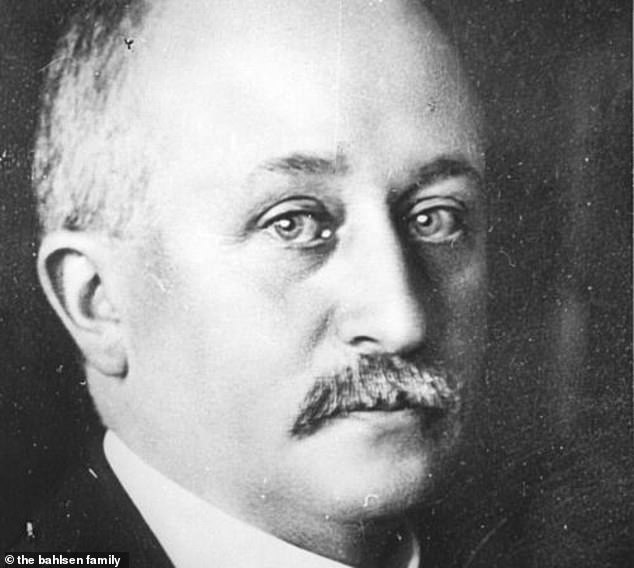
Three sons of founder Hermann Bahlsen (pictured) were members of the Nazi Party
“The truth about these past events is painful and uncomfortable. We deeply regret the injustice done to these people at Bahlsen. We also regret that we did not face this difficult truth earlier.”
Verena Bahlsen, who has since stepped down from the company, first sparked controversy with her brazen claim that she is a capitalist who “wants to make money and buy yachts with her dividends.”
When critics reminded her that her company profited from forced laborers, Ms. Bahlsen, who will inherit a quarter of the family business, hit back.
“That was before my time and we paid the forced laborers as much as the Germans and treated them well,” she told German newspaper Bild, adding that the company had nothing to feel guilty about.
Werner Bahlsen has four children. His sons Johannes and Andreas Bahlsen are still members of the company’s board of directors.
The family has now vowed to use the historians’ findings to work towards a better future and prevent the recurrence of Nazi crimes by promoting a “culture of remembrance”.

Verena Bahlsen, the great-granddaughter of the company’s founder, apologized after she sparked outrage by claiming her company treated forced laborers “well” during World War II
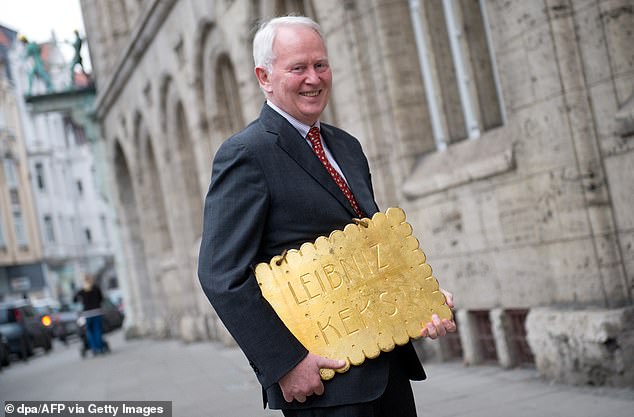
Werner M Bahlsen is pictured in 2016. His company’s annual turnover is currently around £450 million
However, it appears that the organization has not stopped offering further financial compensation to victims of forced labor and their descendants.
A spokesman told The Times that Bahlsen donated 1.5 million Deutsche Marks to the German government’s official forced labour compensation fund in the early 2000s.
Bahlsen’s annual turnover is currently approximately £450 million.
Germany has paid a total of €4.4 billion to more than 1.66 million people in nearly 100 countries in compensation for forced labor. The payments were completed in 2007.
According to the Nazi Forced Labor Documentation Center in Southeast Berlin, 26 million people, including prisoners of war, concentration camp internees, Jews, Roma and Sinti, worked against their will for the Nazi regime.
